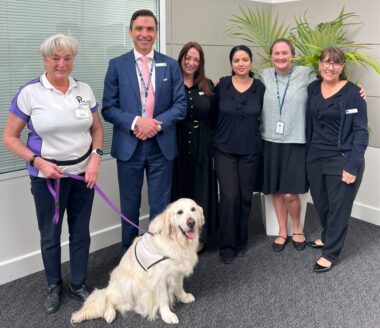The Australian Cardiovascular Alliance (ACvA) has received vital Federal funding to advance its innovative national approach addressing cardiovascular disease (CVD) and stroke. The Australian Government funding will bolster ACvA’s work to align research with health system priorities and facilitate multi-stakeholder collaborations.
Cardiovascular Disease (CVD) and stroke remain the leading causes of death in Australia and worldwide, with CVD impacting the lives of one in six Australians and accounting for around $14 billion in direct health care costs. Addressing the burden of CVD facing the Australian community requires a step change in how we approach challenges of this scale.
A key aspect of the ACvA’s model is the Australian Cardiovascular Alliance Health Leadership Research Forum (CV HLRF), which brings researchers together with senior government officials across all commonwealth, state and territory jurisdictions, to connect and align the research continuum with clinical and health system needs, identified by data and expertise.
Minister for Health & Aged Care, Mark Butler MP announced the funding saying, “The Australian Cardiovascular Alliance’s unique model harnesses the significant research resources in this country to tackle our nation’s critical health challenges with the potential to accelerate new strategies for prevention and treatment, as well as to foster a vibrant medical technology ecosystem.”
“This funding will ensure the continuation of their work in uniting the cardiovascular and stroke sectors around health priorities and impactful solutions. It will facilitate even greater return on investment from the research funding provided by the Labor Government through the NHMRC, MRFF and the $220 million Mission for Cardiovascular Health, and most importantly, improve people’s lives.”
Christine Rees is one of 1.2 million Australians living with cardiovascular disease. She lost her grandmother, mother and two cousins to heart disease.
“Most of my siblings and many of my cousins are living with heart disease and I was diagnosed at 50,” she says. “Without ambitious research collaborations, I wonder what sort of health legacy I would leave my children and grandchildren. Early detection and targeted treatments are crucial for a better, more productive life, and ongoing research holds the promise of a brighter future for my family.”
“CVD and stroke are our greatest healthcare challenges,” says ACvA CEO, Kerry Doyle PSM OAM. “Progress requires a national approach and conversation. Using the collective knowledge of the sector and promoting cross-disciplinary collaboration is essential to big picture thinking and to improving outcomes. By using data and evidence and working collaboratively, we will identify the most pressing areas of need and find and implement solutions that will make a significant health impact.”
ACvA initiatives such as the CV HLRF and Clinical Themes, which develop national, multi-disciplinary research programs to tackle unmet needs in Hypertension, Stroke, Heart Failure, Arrhythmia, Coronary Artery Disease and Improving CV outcomes for First Nations People,
bring together all of the critical stakeholders including government, researchers, clinicians, nurses, pharmacists, allied health professionals, general practitioners, industry, consumers, peak bodies, societies, policymakers and research coordinating bodies. These stakeholders are committed to collaborating across coronary artery disease, heart failure, arrythmias, stroke and hypertension.
By way of example, the ACvA’s hypertension theme has set itself the task of more than doubling blood pressure control rates in Australia from 32% to 70% by 2030 and has created a national vehicle, comprising peak bodies and health and research leaders, to achieve its aims. The coronary artery disease theme is bringing the sector together to reduce heart attacks in some of the most affected regions in Australia, working closely with local stakeholders to achieve its aims.
ACvA President Professor Jason Kovacic highlighted the significance of the Federal government’s support saying, “We’re thrilled the Albanese government supports the vision of a co-ordinated solution-focussed model which connects the sector, sets ambitious targets and works collaboratively to achieve them. We applaud Minister Butler for his foresight and look forward to working with government, health systems and patients to solve the biggest areas of unmet needs for those at risk of or living with CVD and stroke”
About us:
The ACvA is a member-based organisation, establishing a national collaboration of cardiovascular research bodies, scientific societies, individual researchers, clinicians, industry and non-government organisations. The ACvA’s vision is for Australia to be a globally recognised leader in delivering cardiovascular health outcomes through high impact, multidisciplinary and collaborative research, with deep linkages to national and international health systems, strong collaborations with industry and an enhanced translational potential through both policy and commercialisation initiatives.
Contact details:
Media Enquiries
Kerry Doyle PSM OAM,
[email protected] M: 0417 456
Nina Cullen, [email protected]



